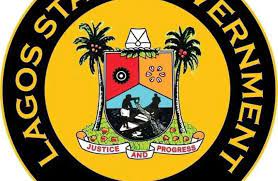By Milcah Tanimu
The Lagos State Government has issued a five-day ultimatum to traders and squatters residing beneath the Ijora Causeway Bridge and the overhead bridge of the Lagos Blue Rail Line in Ijora. They are instructed to dismantle their makeshift structures within the stipulated time frame or face government intervention.
The government emphasized that the ongoing activities in the area pose a significant threat to the safety of the Lagos Blue Line corridor.
The directive for eviction was communicated by Tokunbo Wahab, the Commissioner for the Environment and Water Resources, during an unannounced visit to the location. Wahab expressed concern about the security risks associated with the occupation of the space beneath the blue rail line bridge by mini-buses, block molders, fuel vendors, and other miscreants. He asserted that such practices jeopardize the secure functioning of the blue rail line service, and the government will not tolerate their continuation.
Accompanied by a high-powered team, including ACP Bayo Sulaiman, Chairman of the Special Intervention Squad on the Restoration of the Lagos Badagry Rail Corridor Clean-Up, and Kunle Rotimi-Akodu, Special Adviser on the Environment, Wahab revealed that the state Task Force on Special Offences would take control of the entire land under the Ijora Causeway Bridge, with the support of the state government.
In addition, a 24-hour eviction notice was issued to those selling petroleum products under the Ijora Bridge, urging them to relocate their trucks and containers to avoid confiscation. Wahab highlighted the potential dangers posed by these activities to both infrastructure and human presence in the area.
Wahab stressed that no enforcement actions should be taken against distributors and sellers of styrofoam products until the expiration of the three-week moratorium granted to them. This grace period aims to allow producers and distributors to deplete their existing stock before the ban is enforced.
The environmental team also visited Park View Estate in Ikoyi, addressing issues where a secondary collector had been encroached upon by building structures and fencing. The Drainage Enforcement and Compliance Department was instructed to serve notices to property owners, urging them to grant unrestricted access for the state to monitor secondary collectors and remove any impediments.
Wahab emphasized that monitoring and enforcing environmental laws would be a daily undertaking, signaling a continuation of the ministry’s efforts from the previous year. The delegation included various key figures from different departments within the ministry.

